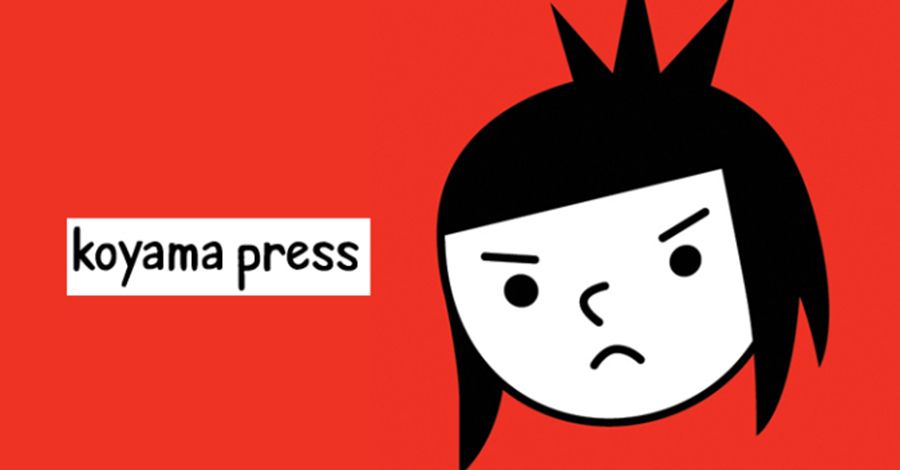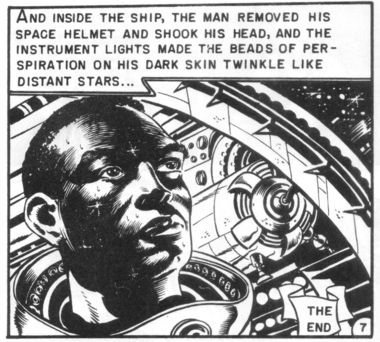Publishing | Zainab Akhtar looks at the success of Koyama Press and how it changed the comics small press world as a whole. She starts with the amazing origin story: Founder Annie Koyama nearly died from a brain aneurysm, and while she was recovering she played the stock market so successfully that she was able to quit her job and launch Koyama Press. For six years she provided funding for artists without taking anything for herself, and she also searched for and promoted emerging artists. "On an immediate level, Annie’s generous yet meritocratic approach validated the work of artists who were otherwise written off by the established alternative comics community, which often views this new generation of cartoonists working primarily online as somehow less legitimate," Akhtar writes. "On a broader scale, her commitment to taking risks on emerging artists reflected an ongoing paradigm shift affecting the way alternative comics are produced and consumed." [The Fader]
Political Cartoons | The president of Wesley College apologized to the student body for several cartoons critical of Black Lives Matter that appeared in the independent student newspaper, The Whetstone. One of the cartoons depicted a black woman saying "I'm late for my abortion" and another showed a man saying "I'm sorry ma'am, you just look like a HOE" to a garden hoe. Cartoonist Bryheim Muse, who is black, defended the cartoons, saying "The small amount of number of blacks dying from cops compared to the large amount of blacks dying from abortion--these are real issues that our people need to address," and "I was making a point that the way you dress defines who you are, and what we call in society today as a hoe--a lot of women don't like to call themselves that--but that's how a lot of them dress today." Tiffany Griffin, who is a member of the Black Student Union, countered that the cartoons were offensive, particularly in the context of the larger racial divide on the campus. She and two other students sent a letter to President Richard Clark II with a list of demands, and he responded by sending an apology to the entire student body. While he said he was "disappointed" by the cartoon, which was "in no way reflective of the beliefs or values of our college," he also called for an open dialogue so students could learn to exercise free speech while being aware of the effect it has on others, saying, "They must take take responsibility for the ideas and opinions that they express." [WDEL]
Comics | "What if the 1960s really began in 1952, with the publication of Shock SuspenStories and MAD?" Ben Saunders, head of the comics studies program at the University of Oregon, explains how EC comics, for all the shock and gore, were way ahead of their time. Saunders is the curator of "Aliens, Monsters, and Madmen: The Art of EC Comics," which opens May 14 at the Jordan Schnitzer Museum of Art in Eugene, Oregon. In addition to the famous severed-head cover—which fits the popular perception of EC Comics—the exhibit includes original art from groundbreaking stories such as "Judgement Day." "In what is officially a children's medium, there are stories about the Ku Klux Klan, stories about corrupt law enforcement, the evils of McCarthyism, and anti-racism science-fiction parables," Saunders said. [The Oregonian]
Creators | The local paper profiles colorist Tom Smith, who worked closely with artist George Perez on many projects, including the JLA/Avengers crossover. Smith suffered a stroke in August 2014 and has only recently been able to start working again—after switching from his left to his right hand to control his computer. But work was drying up even before the stroke, as comics publishers sent the work overseas, so he doesn't plan to return to the field full time. [myCentralJersey.com]
Political Cartoons | "#TwitterIsDead," the Chinese cartoonist Badiucao Tweeted, after learning that Twitter has hired Kathy Chen as its managing director for mainland China, Taiwan, and Hong Kong. Chen, a former military engineer and member of the People's Liberation Army, at one point was involved in a joint venture, backed in part by China's Ministry of Public Security, that created software to filter out “information of political sensitivity and harmful information.” Badiucao now lives in Australia and had been posting his cartoons on the Chinese social media network Weibo, but turned to Twitter after the government shut down his Weibo account over 30 times. The Chinese government blocks access to Twitter in mainland China, but about 18,000 users have managed to get around the "great firewall" and have active accounts. [What's on Weibo]
Passings | David Beard remembers Ron Killian, the owner of The Turning Page comic shop in Milwaukee, Wisconsin, who passed away recently: "Ron encouraged me to send a letter to Will Eisner, and I did, and got a reply—which amazed me. Ron encouraged me to send a submission to Amazing Heroes magazine—I was 13, I barely understood how to write. It was rejected. Who cares? It was awesome to try." [ICv2]
Creators | With a new Captain America movie in the offing, Megan Margulies remembers the character's co-creator—her grandfather, Joe Simon. [Woman's Day]
Creators | Brecht Evens chats with Hilary Brown about fine art, how his style has evolved, and his new graphic novel, Panther. [Paste]
Collecting | Beau Smith writes about the ongoing challenge of keeping his comics collection organized over the years. [Westfield Comics]
Retailing | Retailers from several very different comics shops discuss how they market to kids—including Challengers in Chicago, which has a mini-store just for them. [ICv2]
Retailing | What's keeping India's independent bookstores going? Graphic novels and adult coloring books! [India Today]


